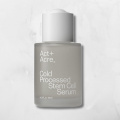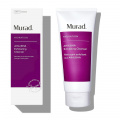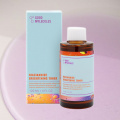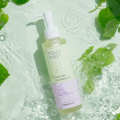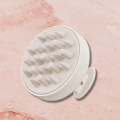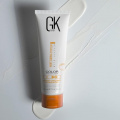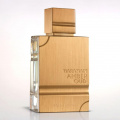Home Remedies for Itchy Scalp: Say Goodbye to Itchiness
From nature’s pantry to your scalp, try some of these easy and skin-friendly home remedies for itchy scalp that can soothe and heal its dryness and irritation.
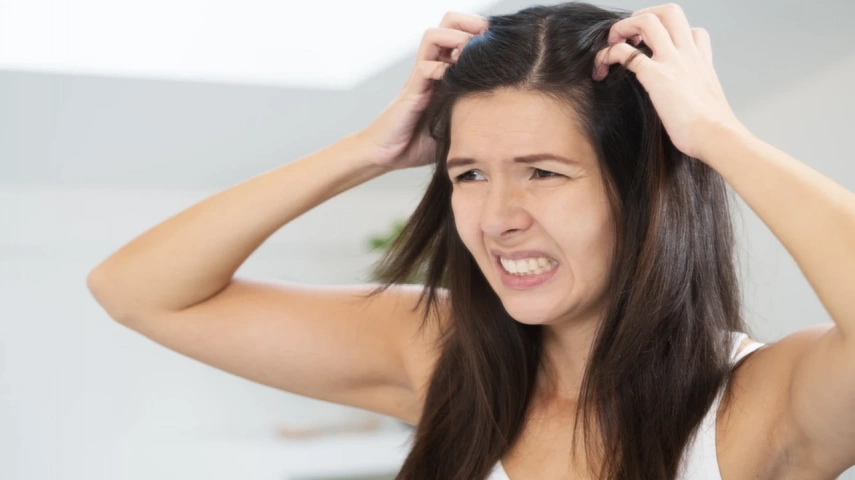
An itchy scalp is the ultimate test of your willpower to resist the temptation of scratching like a maniac in public. Whatever the reason, a dry, itchy scalp is a nuisance, but the relief you get after a vigorous scratch is delightful. We’ve all searched for home remedies for itchy scalp once in our lives. Our contributor Dr. Zeeshan Afzal, who is a Medical Officer at Welzo, an online healthcare platform, states that an itchy scalp can be caused by a variety of conditions, including dandruff, dry skin, scalp psoriasis, eczema, allergic reactions (contact dermatitis), and fungal infections like ringworm, or lice. In some cases, an itchy scalp may also be a symptom of a more systemic condition, like diabetes or liver disease.
In medical terms, a scalp itch is termed ‘scalp pruritis’ and is often related to scalp conditions like psoriasis, hives, dandruff, or a simple allergic reaction to a hair care product. Knowing a few DIY, all-natural itchy scalp treatments can come in handy and give you immediate relief. Read on to find out more about it.
What Are the Causes of an Itchy Scalp?
Itching is primarily caused by a buildup of debris around the hair roots, which prevents the scalp from breathing. The accumulated debris could be anything from residual haircare products to dirt, excess scalp oil, toxins from head bugs, or just your shredded skin cells. This buildup can clog hair follicles, irritate the skin, and disrupt the natural balance of the scalp. It may also lead to the growth of fungi or bacteria, which can further trigger the nerve receptors on the scalp and induce inflammation, causing a tingly sensation of itch (1).
Be it an itchy scalp caused by greasy hair or a lice infestation, you picked up on a holiday, here are tips and tricks on how to stop itchy scalp. And if a few home remedies for itchy scalp could spare your emergency visit to the dermatologist, then they are welcome.
Our contributor Dr. Zeeshan Afzal says, “Home remedies for an itchy scalp can be cost-effective and easy to implement. They often involve natural ingredients, such as tea tree oil for its antifungal and antibacterial properties, apple cider vinegar for its anti-inflammatory properties, or coconut oil for its moisturizing benefits. These remedies can provide temporary relief for minor itchiness. However, if the itching is severe or persistent, it's important to see a healthcare provider to identify and treat any underlying conditions.”
15 Best Home Remedies for Itchy Scalp to Try

Multiple home remedies exist for scalp conditions that are safe, easy, cost-effective, and can give amazing results. They can save you from worsening scalp itching and an emergency visit to the doctor. Let us discuss 15 such DIY itchy scalp treatments that you can do from the comfort of your home.
1. Lemon Juice
Lemon is rich in citric acid or vitamin C. It aids in clarifying the scalp buildup and breaks down colonies of microbes like bacteria and fungi. Essentially antiseptic, it keeps the scalp squeaky clean and disinfected, especially for all of you suffering from dandruff (2).
How to Use
Squeeze fresh lemon juice and dilute it with 3-5 drops of water. Apply it directly to your scalp using a cotton ball or spray bottle. Leave it on for 30 minutes before rinsing.
Repeat this process 1-2 times a week to benefit from lemon juice's natural antiseptic properties, which can help combat microbial overgrowth and alleviate scalp itching.
2. Aloe Vera Juice
Aloe vera leaf extracts are known to relieve scalp itching and inflammation by moisturizing a dry flaky scalp and soothing it (3).
How to Use
Extract fresh aloe vera gel from an aloe leaf. Apply it directly to your scalp and leave it on for 20-30 minutes before washing it off with a mild shampoo.
Repeat this process 2-3 times a week to benefit from aloe vera's soothing and moisturizing properties, which can relieve scalp itching and inflammation.
3. Organic Coconut Oil

Cold-pressed, no-fragrant organic coconut oil is rich in essential fatty acids. Coconut oil moisturizes the scalp and nourishes the hair follicles. Moreover, coconut oil is known to suffocate scalp bugs like lice (4).
How to Use
Heat a few tablespoons of coconut oil, rub it into your palms, and massage it into your scalp. Leave it on for at least an hour or overnight before washing it off with a mild shampoo.
Repeat this process 2 times a week to moisturize and nourish the scalp, reducing dryness and itching.
4. Yogurt
Yogurt is rich in probiotics, good fats, and lactic acid. It hydrates a dry scalp, cleanses the product buildup, and has a calming effect on it. It is another effective treatment for dandruff (5).
How to Use
Apply plain yogurt to your scalp and leave it on for 30 minutes before washing it off with a mild shampoo.
Use this remedy 1-2 times a week to benefit from yogurt's cooling and moisturizing properties, which can help alleviate scalp itching.
5. Honey
Pure organic honey is known to be antimicrobial. It is good for thorough scalp disinfection. Moreover, it moisturizes your hair and is amazing for skin and scalp dryness (6).
How to Use
Apply raw honey directly to your scalp, gently massaging it in circular motions. Leave it on for 20-30 minutes before rinsing with lukewarm water.
Use this remedy once a week to benefit from honey's moisturizing and antimicrobial properties, which can help soothe an itchy scalp.
6. Oatmeal
Oatmeal acts as an exfoliant and is ideally used as a scalp scrub. They remove the dead skin cells and soak up the extra oil and grime (7).
How to Use
Grind oatmeal into a fine powder and mix it with enough water to form a paste. Apply the paste to your scalp, gently massaging it in circular motions. Leave it on for 20-30 minutes before rinsing.
Repeat this process 2-3 times a week to soothe and moisturize the scalp, reducing itching and inflammation.
7. Baking soda
Baking soda is chemically referred to as sodium bicarbonate. It is a common kitchen ingredient with antibacterial and antifungal properties that benefit our skin and scalp. Fungal or bacterial infections of the scalp can lead to inflammation and flaking, causing a severe itch (8),(9).
How to Use
Mix 1-2 tablespoons of baking soda with enough water to form a paste. Apply the paste to your scalp, gently massaging it in circular motions. Leave it on for 10-15 minutes before rinsing.
Use this remedy once a week to exfoliate the scalp and remove product buildup, which can alleviate itching and promote a healthier scalp environment.
8. Olive Oil

Oleuropein and oleocanthal, two compounds found in olive oil, have anti-inflammatory and skin-protective properties. These substances could help alleviate itching and reduce inflammation on the scalp (10).
How to Use
Warm up one tablespoon of olive oil and massage it into your scalp. Leave it on overnight before washing it off with a mild shampoo.
Repeat this process two times a week to see the benefits.
9. Neem Oil
The benefits of neem for overall health are beyond words. It is cleansing, detoxifying, anti-inflammatory and antibacterial. It is ideal for all sorts of skin issues like dandruff, scalp allergies, lice, fungal infections, and scalp wounds (11).
How to Use
Dilute a few drops of neem oil in carrier oil, such as coconut oil. Massage the mixture into your scalp and leave it on for 30 minutes before rinsing.
Use this remedy 2-3 times a week to take advantage of neem oil's antifungal and anti-inflammatory properties, which can help relieve scalp itching.
10. Tea Tree Oil
Tea tree oil has antibacterial properties that help reduce scalp inflammation and kill lice (12).
How to Use
Dilute 2-3 drops of tea tree oil in a carrier oil, such as coconut or olive oil. Massage the mixture into your scalp and let it sit for 30 minutes before rinsing.
Use this remedy once a week to take advantage of tea tree oil's scalp-benefiting properties.
11. Apple Cider Vinegar (ACV)
ACV has antifungal properties and it also helps restore the healthy pH of the scalp. Its benefits for the reduction of scalp irritation and itch are largely based on anecdotal evidence (13).
How to Use
Mix equal parts of apple cider vinegar and water. Apply the mixture to your scalp using a cotton ball or spray bottle. Leave it on for 15 minutes before rinsing it with water.
Repeat this process once a week to help restore the pH balance of your scalp and reduce itching.
12. Peppermint Oil
Peppermint oil, as we know, is calming, cooling, and refreshing. It has antibacterial properties and reduces oil buildup on the scalp (14).
How to Use
Dilute a few drops of peppermint oil in a carrier oil, such as olive oil. Massage the mixture into your scalp and leave it on for 30 minutes before rinsing.
Use this remedy once a week to take advantage of peppermint oil's cooling effect, which can relieve your scalp itch.
13. Jojoba Oil
This essential oil is a powerhouse of vitamins C, B, and E, minerals like copper and zinc, and essential fats. It nourishes the scalp and hair roots, boosts skin regeneration in the scalp, and is toxic to bacteria and fungi (15).
How to Use
Dilute a few drops of jojoba oil with olive oil, massage the mixture into your scalp, and leave it on for 30 minutes before rinsing.
Use this remedy at least twice a week for the best results.
14. Chamomile Extracts

Chamomile is a natural exfoliant that removes dead skin cells and oily buildup on your scalp. It also has a high concentration of antioxidants and antibacterial and anti-inflammatory effects. It lessens bacteria, roughness, and itching on the scalp (16).
How to Use
Brew a strong cup of chamomile tea and let it cool down. Use it as a final rinse after shampooing your hair, ensuring it reaches your scalp. Leave it on for 15 minutes before rinsing.
Repeat this process once a week to benefit from chamomile tea's soothing and anti-inflammatory properties.
15. Rosemary Oil
Antioxidants like ursolic acid in rosemary oil are ideal for detoxifying the scalp and soothing it from inflammation (17).
How to Use
Dilute a few drops of rosemary oil in a carrier oil, such as olive oil or coconut oil. Massage the mixture into your scalp and leave it on for 30 minutes or overnight before rinsing.
Repeat this process two times a week to take advantage of rosemary oil's anti-inflammatory properties, which can help reduce scalp itching.
Home remedies for itchy scalp are best implemented if you are aware of the cause of the itchiness. If the reason is as specific as a lice infestation or fungal infection, then it becomes easier to determine the exact itchy scalp treatment.
What Are the Causes of an Itchy Scalp?

The scalp itch that won’t go away might get bothersome after a while. Several potential causes for an itchy scalp range from minor issues to more serious underlying conditions (18). Understanding the reasons behind a dry, itchy scalp can help in identifying the appropriate itchy scalp treatment.
Here are some common causes of an itchy scalp:
1. Dirty Hair
Anecdotal evidence suggests that the accumulation of oil, debris, and dead skin cells on a filthy scalp can cause irritation and scalp itching.
2. Product Buildup in the Scalp
Anecdotal evidence suggests that inadequate rinsing of the scalp after a hair wash, hair mask, or an oil massage can lead to the buildup of residual products that attract dirt and harbor bacteria. This may result in an itchy scalp.
3. Dryness
Dryness is one of the main causes of an itchy scalp. The scalp becomes dry, flaky, and itchy when it is dehydrated. Dryness can result from extreme weather, over-shampooing, or using hot water. These factors can remove the natural oils from the scalp.
4. Dandruff
Dandruff is a common scalp condition characterized by white flakes that shed from the scalp. It often causes terrible itching. Numerous things, such as an overproduction of oil, sensitivity to hair care products, an overgrowth of common scalp bacteria, and a yeast-like fungus called Malassezia, can contribute to dandruff (18).
5. Head Lice
An itchy, irritated scalp can result from a head lice infestation. Lice are tiny insects that feed on human blood and live on the scalp. They are easily spread through close contact and are especially common in school-age children (19).
6. Allergic Reactions
An allergic reaction to hair care items like shampoos, conditioners, or hair dyes may cause an itchy scalp. These products contain allergens that can irritate the scalp and cause itching, swelling, and redness (20).
7. Fungal Infections
Ringworm (tinea capitis) is a fungal infection that can affect the scalp and cause itching. Round, scaly patches on the scalp and, in some cases, hair loss are symptoms of the contagious fungal infection ringworm (21).
8. Seborrheic Dermatitis
Red, itchy, and flaky skin are the effects of this more severe type of dandruff. It is most commonly found on the scalp, but it can also occur in other oily areas of the body. The exact cause is unknown, but it may involve a combination of factors such as yeast overgrowth, hormonal changes, and genetic predisposition.
9. Scalp Psoriasis
Psoriasis is a chronic autoimmune disease that causes rapid skin cell turnover, resulting in thick, scaly patches. Scalp psoriasis can result in redness, itching, and silver-white scales.
What Home Remedies Should Be Avoided to Treat an Itchy Scalp?
There are a few suggested home remedies for itchy scalp that do more harm than good. Here are a few based on anecdotal research:
- Washing your hair with steaming hot water can strip away natural oils and worsen scalp dryness and itching.
- Using undiluted citrus fruit extracts (lemon juice) can be irritating to the scalp. The acidity in citrus fruits can be too harsh for some scalps, causing further irritation.
- Petroleum jelly or extremely greasy kinds of butter can clog hair follicles and exacerbate scalp issues.
- Alcohol-based products, like beer shampoo, can further dry out the scalp, leading to more itching.
- Harsh hair care chemicals, such as bleach and hair dyes, that are used without a patch test can cause scalp irritation and damage.
How to Prevent an Itchy Scalp
Knowing the dos and don'ts of an itchy scalp can help you deal with it after you've already got it. But to be honest, it is way better to avoid an itchy scalp altogether.
Here are a few ways to prevent an itchy scalp:
1. Keep Your Scalp Squeaky Clean
Shampoo your hair every 2-3 days with a mild cleanser to remove dirt, oil, and product buildup. Use a gentle, hypoallergenic shampoo that is appropriate for your hair type, and refrain from using hair products excessively.
2. Avoid Washing Your Hair with Hot Water
Your scalp's natural oils can be stripped away by hot water, causing dryness and itching. When washing your hair, use lukewarm or cold water to keep the scalp's moisture balance.
3. Refrain from Using Harsh Hair Care Products
Opt for products that are labeled as gentle, hypoallergenic, or specifically formulated for sensitive scalps. Avoid hair dyes and hair creams without a patch test.
4. Protect Your Scalp from the Sun
Excessive sun exposure can dry out your scalp and lead to itchiness. When spending time outdoors, protect your scalp by wearing a hat or using a serum with SPF specifically designed for the scalp and hair.
5. Avoid Tight Hairstyles
Tight ponytails, braids, and buns can tug on the hair and irritate the scalp, causing itching. Choose looser hairstyles that won't overly strain your scalp.
6. Moisturize Your Scalp Once in a While
If your scalp tends to dry, use a moisturizing conditioner or natural oil, such as coconut or jojoba oil, or with a scalp serum, to keep your scalp hydrated. Apply it directly to the scalp and massage gently.
7. Don't Scratch Your Scalp
Scratching induces more itching. Find alternatives to scratching or picking at your scalp to get rid of the itching, such as gently massaging your head or applying a cool compress.
Keep the above factors in mind to prevent exacerbation of a scalp itch.
Conclusion
The best home remedies for itchy scalp can easily cleanse your scalp and help you get rid of itchiness. Use these home remedies with the utmost caution; wash your scalp thoroughly after use. At times, no therapy is the best therapy; give your scalp a much-needed break and let it breathe. Apart from the suggested itchy scalp treatment, it is important to have a healthy diet, exercise daily, meditate, and avoid junk food, alcohol, and smoking to lead a stress-free life. When all of the lifestyle factors have been considered, you will automatically see your scalp health improve.
The DIY remedies for the itchy scalp are all-natural and may take time to show effects, so be patient. Even though the above-mentioned remedies are all-natural, they may have side effects. Hence, it is advisable to do a patch test for about 48 hours before use. If you've tried home remedies and haven't seen any improvement, then it's time to see a dermatologist right away!
Contributor: Dr. Zeeshan Afzal, MD, Welzo Medical Officer
References:
1. Leon A, Rosen JD, Hashimoto T, Fostini AC, Paus R, Yosipovitch G. Itching for an answer: A review of potential mechanisms of scalp itch in psoriasis. Experimental dermatology. 2019 Dec;28(12):1397-404.
https://pubmed.ncbi.nlm.nih.gov/31022307/
2. Oikeh EI, Omoregie ES, Oviasogie FE, Oriakhi K. Phytochemical, antimicrobial, and antioxidant activities of different citrus juice concentrates. Food Sci Nutr. 2015 Jul 30;4(1):103-9.
https://www.ncbi.nlm.nih.gov/pmc/articles/PMC4708628/
3. Surjushe A, Vasani R, Saple DG. Aloe vera: a short review. Indian J Dermatol. 2008;53(4):163-6.
https://www.ncbi.nlm.nih.gov/pmc/articles/PMC2763764/
4. van der Wouden JC, Klootwijk T, Le Cleach L, Do G, Vander Stichele R, Knuistingh Neven A, Eekhof JAH. Interventions for treating head lice. Cochrane Database Syst Rev. 2018 May 22;2018(5):CD009321.
https://www.ncbi.nlm.nih.gov/pmc/articles/PMC6494540/
5. Goel A. How to make your hair grow fast and long.
https://www.myupchar.com/en/beauty/hair-growth/balo-ko-lamba-karne-ke-gharelu-upay-in-hindi
6. Al-Waili NS. Therapeutic and prophylactic effects of crude honey on chronic seborrheic dermatitis and dandruff. European journal of medical research. 2001 Jul 1;6(7):306-8.
https://europepmc.org/article/med/11485891
7. Michelle Garay M, Judith Nebus M, Menas Kizoulis B. Antiinflammatory activities of colloidal oatmeal (Avena sativa) contribute to the effectiveness of oats in treatment of itch associated with dry, irritated skin. J Drugs Dermatol. 2015 Jan;14(1):43-8.
8. Drake D. Antibacterial activity of baking soda. Compend Contin Educ Dent Suppl. 1997;18(21):S17-21;quiz S46.
https://pubmed.ncbi.nlm.nih.gov/12017929/
9. Letscher-Bru V, Obszynski CM, Samsoen M, Sabou M, Waller J, Candolfi E. Antifungal activity of sodium bicarbonate against fungal agents causing superficial infections. Mycopathologia. 2013 Feb;175(1-2):153-8.
https://pubmed.ncbi.nlm.nih.gov/22991095/
10. Lucas L, Russell A, Keast R. Molecular mechanisms of inflammation. Anti-inflammatory benefits of virgin olive oil and the phenolic compound oleocanthal. Curr Pharm Des. 2011;17(8):754-68.
https://pubmed.ncbi.nlm.nih.gov/21443487/
11. Mathur S, Kachhwaha S. Neem tree: amazing beauty component in skin and hair care. Advances in Pharmacology and Toxicology. 2015 Dec 1;16(3):31.
https://www.proquest.com/openview/88c15ad2374c54a57d9ff24731bb1f93/1?pq-origsite=gscholar&cbl=136117
12. Carson CF, Hammer KA, Riley TV. Melaleuca alternifolia (Tea Tree) oil: a review of antimicrobial and other medicinal properties. Clin Microbiol Rev. 2006 Jan;19(1):50-62.
https://www.ncbi.nlm.nih.gov/pmc/articles/PMC1360273/
13. Yagnik D, Serafin V, J Shah A. Antimicrobial activity of apple cider vinegar against Escherichia coli, Staphylococcus aureus and Candida albicans; downregulating cytokine and microbial protein expression. Sci Rep. 2018 Jan 29;8(1):1732.
https://www.ncbi.nlm.nih.gov/pmc/articles/PMC5788933/
14. Singh R, Shushni MA, Belkheir A. Antibacterial and antioxidant activities of Mentha piperita L. Arabian Journal of Chemistry. 2015 May 1;8(3):322-8.
https://www.sciencedirect.com/science/article/pii/S1878535211000232
15. Blaak J, Staib P. An updated review on efficacy and benefits of sweet almond, evening primrose and jojoba oils in skin care applications. International Journal of Cosmetic Science. 2022 Feb;44(1):1-9.
https://onlinelibrary.wiley.com/doi/full/10.1111/ics.12758
16. Srivastava JK, Shankar E, Gupta S. Chamomile: A herbal medicine of the past with bright future. Mol Med Rep. 2010 Nov 1;3(6):895-901.
https://www.ncbi.nlm.nih.gov/pmc/articles/PMC2995283/
17. Abelan US, de Oliveira AC, Cacoci ÉS, Martins TE, Giacon VM, Velasco MV, Lima CR. Potential use of essential oils in cosmetic and dermatological hair products: A review. Journal of Cosmetic Dermatology. 2022 Apr;21(4):1407-18.
https://onlinelibrary.wiley.com/doi/abs/10.1111/jocd.14286
18. Bin Saif GA, Ericson ME, Yosipovitch G. The itchy scalp–scratching for an explanation. Experimental dermatology. 2011 Dec;20(12):959-68.
19. InformedHealth.org [Internet]. Cologne, Germany: Institute for Quality and Efficiency in Health Care (IQWiG); 2006-. Head lice: Overview. 2008 Mar 5 [Updated 2018 Dec 13].
https://www.ncbi.nlm.nih.gov/books/NBK279329/
20. McFadden JP, White IR, Frosch PJ, Sosted H, Johansen JD, Menne T. Allergy to hair dye. BMJ. 2007 Feb 3;334(7587):220.
https://www.ncbi.nlm.nih.gov/pmc/articles/PMC1790769/
21. Hay RJ. Endemic scalp ringworm: an object lesson in control of a common fungal infection. Current Opinion in Infectious Diseases. 2001 Apr 1;14(2):121-2.
22. Choi M, Choi E. Usefulness of the Green Coffee Bean Fermented Product as a Cosmetic Material for Scalp Hair Protection. Protection Convergence. 2022 Mar 30;7:1-2.
https://j-institute.org/wp-content/uploads/2022/05/Protection-Convergence_202271.pdf
23. Determination of Effectiveness Traditional Cosmetics of Coconut Oil and Turmeric as Anti-Dandruff
ALSO READ: Some Easy and Natural DIY Home Remedies for Dry Scalp





 JOIN OUR WHATSAPP CHANNEL
JOIN OUR WHATSAPP CHANNEL



































